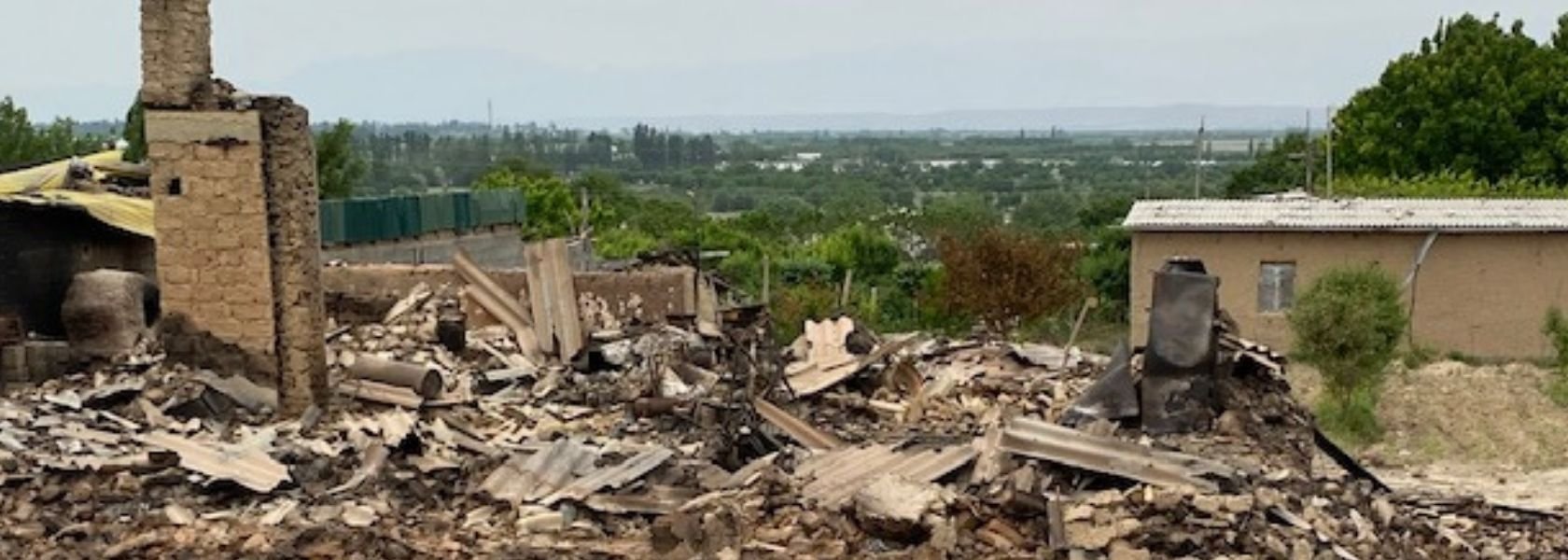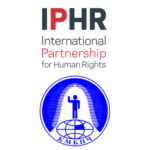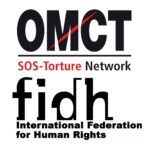From 28 April to May 1, an armed conflict took place in the Kyrgyzstan-Tajikistan borderland, leading to 52 deaths, over 300 others injured, mass displacement, and destruction of civilians’ homes. The International Federation for Human Rights (FIDH), together with 12 of its member organisations from Eastern Europe and Central Asia, call for urgent action to investigate the alleged violations and prevent an escalation of the conflict.
Over 50 individuals, including civilians, were killed and hundreds were wounded in border clashes opposing Tajikistan and Kyrgyzstan troops over the four days. Among the victims are two children who died from wounds caused by shelling. As of 4 May, approximately 44,650 Kyrgyzstani and about 15,000 Tajikistani citizens had been evacuated from the conflict zone. On 30 April, the two parties agreed to a ceasefire and troop withdrawal.
According to FIDH member organisations, about a dozen villages were damaged as a result of armed confrontations, while houses and other civilian objects were burned down. Data from the Kyrgyz side suggests that 78 houses, two schools, an obstetric and gynecological clinic, a kindergarten, 10 gas stations, eight stores, three border checkpoints and a police station were partially or completely destroyed in Batken Region (Kyrgyzstan). According to official preliminary data from Tajikistan, in the territory of three jamoats of Isfara, 16 residential houses, an auxiliary civil facility and the building of a secondary school were partially or completely destroyed, as well as one house in the territory of Ovchi Kalacha village. More than 130 people were left without shelter and access to basic living conditions.
FIDH and its member organisations are concerned about reports of indiscriminate use of force against civilians and civilian facilities. Reportedly, a conflict over a water distribution point, which began on 28 April, escalated by the following day into an armed clash between border military units of both states. There is evidence that the military used machine guns, mortars and rocket artillery.
Our organisations recall that the use of wide-area explosive weapons in any populated areas exposes civilians to a great danger due to their indiscriminate nature, and is prohibited by international humanitarian law (IHL). IHL also prohibits attacks that directly target civilians or civilian facilities. Our organisations are fully convinced that indiscriminate attacks against civilians and the destruction of civilian infrastructure in Kyrgyzstan-Tajikistan borderland are unjustified and constitute a gross violation of IHL and international human rights law.
Our organisations urge parties to the armed conflict to:
respect the ceasefire, make civilians’ security a priority in conflict resolution, and ensure equal participation of local communities in conflict resolution processes;
provide the necessary humanitarian assistance to the victims and their families, including all those who were displaced from their homes because of significant threats to their lives and health, with special attention to women, children, and other vulnerable groups;
develop an action plan to ensure equal access of citizens of both countries to water and land resources, which is a fundamental prerequisite for the implementation of human rights law, and solving the issue of the demarcation of safe borders;
conduct an investigation that will identify those responsible for civilian casualties, the destruction of civilian facilities, and other IHL violations.
We call on the international community to:
participate in negotiations between the parties to the conflict to de-escalate tensions, in accordance with the agreement between Kyrgyzstan and Tajikistan;
provide humanitarian assistance to local populations at risk, in order to prevent further civilian casualties;
launch the OSCE Moscow Mechanism, and/or another international mechanism to investigate possible violations of IHL and human rights law committed during this conflict;
call on Kyrgyzstan to ratify the Rome Statute of the International Criminal Court.
Background
The history of the conflict between Tajikistan and Kyrgyzstan dates back to the early post-Soviet period, with tensions emerging from unresolved issues of delimitation and demarcation of state borders. The reasons for the recurring conflicts in the border area are access to water, land disputes, as well as squabbles arising from the main drug smuggling route from Afghanistan, which passes through Tajikistan and southern Kyrgyzstan.
This time, the cause of the conflict was access to water in the border areas of Sughd (Tajikistan) and Batken (Kyrgyzstan) regions: due to the lack of demarcation, it is not clear which side has the right to use water resources, and under which procedure. On 28 April, residents of Sughd, a province of Tajikistan that borders Kyrgyzstan, started to install cameras for video surveillance at Golovnoy water distribution site. The local Kyrgyz population opposed the installation. After a verbal skirmish, the participants of the incident started throwing stones at each other. On 29 April, this conflict escalated into an armed clash, in which the militaries of Kyrgyzstan and Tajikistan took part.
Anti-Discrimination Center Memorial – Belgium
Kylym Shamy Public Foundation – Kyrgyzstan
Civil Society Institute – CSI – Armenia
Asociația Promo-LEX – Moldova
Adilet Legal Clinic – Kyrgyzstan
Human Rights Movement: Bir Duino Kyrgyzstan
Center for Civil Liberties – Ukraine
ILI Foundation – Kazakhstan
Kazakhstan International Bureau for Human Rights and Rule of Law (KIBHR)
Citizens’ Watch – Russia
Human Rights Center (HRC) – Georgia
Viasna Human Rights Center – Belarus

















